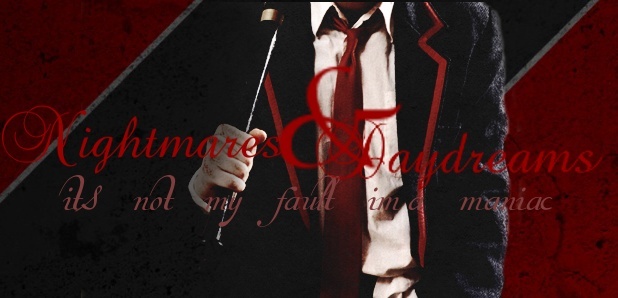Welcome
Now come one, come all to this tragic affair----
Welcome to Nightmares & Daydreams. A modern day rp that takes place in a psychiatric hospital.
You were thrown in here for one reason or another. Dumped in this hellhole they call Daniel Grey Psychiatric Hospital, or actually more commonly known as the local loony bin of California. When you think "psychiatric hospital" or "mental institution" I'm sure the first thing you think are those scary asylums they have in the movies with bright white lights everywhere and people in straight jackets not talking to each other.
I guess in a way Daniel Grey is like that in the sense that a lot of the walls and floors here are a bright white. But there aren't any people in straight jackets and a lot of the people here talk to each other. Actually the patients here are friendly in most cases, save for the few that are anti-social beyond belief. And they can dress how they want,it's actually quite homey here so don't be afraid when you're dropped off for the first time.
Whether you be a normal human being who decided to work here at Daniel Grey as a therapist or security or an unstable patient you are welcome here, just remember. Lights out at 10 PM and DO NOT step out of your room past midnight.
Switch account
Switch Accounts
Time and Date
Monday
11:30 AM
Head Count
Therapists- 2Mental Health Professionals- 1
Security- 1
Interns- 1
Rehabilitation Counselors- 1
Patients-11
Daniel Grey Staff
Dr. Evans

Dr. Carthur
James
Vekpo
Dr. Elizabeth

Killian


Season

Word Counter
Word Length: 0

 Home
Home


